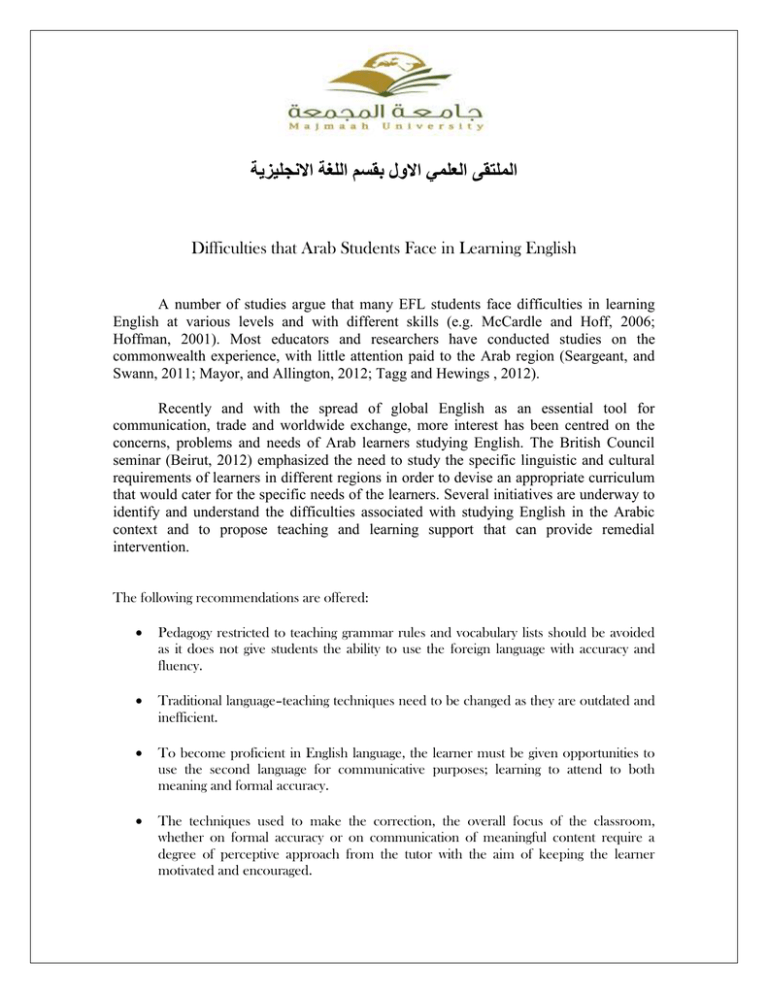English difficulties
advertisement

الملتقى العلمي االول بقسم اللغة االنجليزية Difficulties that Arab Students Face in Learning English A number of studies argue that many EFL students face difficulties in learning English at various levels and with different skills (e.g. McCardle and Hoff, 2006; Hoffman, 2001). Most educators and researchers have conducted studies on the commonwealth experience, with little attention paid to the Arab region (Seargeant, and Swann, 2011; Mayor, and Allington, 2012; Tagg and Hewings , 2012). Recently and with the spread of global English as an essential tool for communication, trade and worldwide exchange, more interest has been centred on the concerns, problems and needs of Arab learners studying English. The British Council seminar (Beirut, 2012) emphasized the need to study the specific linguistic and cultural requirements of learners in different regions in order to devise an appropriate curriculum that would cater for the specific needs of the learners. Several initiatives are underway to identify and understand the difficulties associated with studying English in the Arabic context and to propose teaching and learning support that can provide remedial intervention. The following recommendations are offered: Pedagogy restricted to teaching grammar rules and vocabulary lists should be avoided as it does not give students the ability to use the foreign language with accuracy and fluency. Traditional language–teaching techniques need to be changed as they are outdated and inefficient. To become proficient in English language, the learner must be given opportunities to use the second language for communicative purposes; learning to attend to both meaning and formal accuracy. The techniques used to make the correction, the overall focus of the classroom, whether on formal accuracy or on communication of meaningful content require a degree of perceptive approach from the tutor with the aim of keeping the learner motivated and encouraged. By lecturer Nour Melhim
